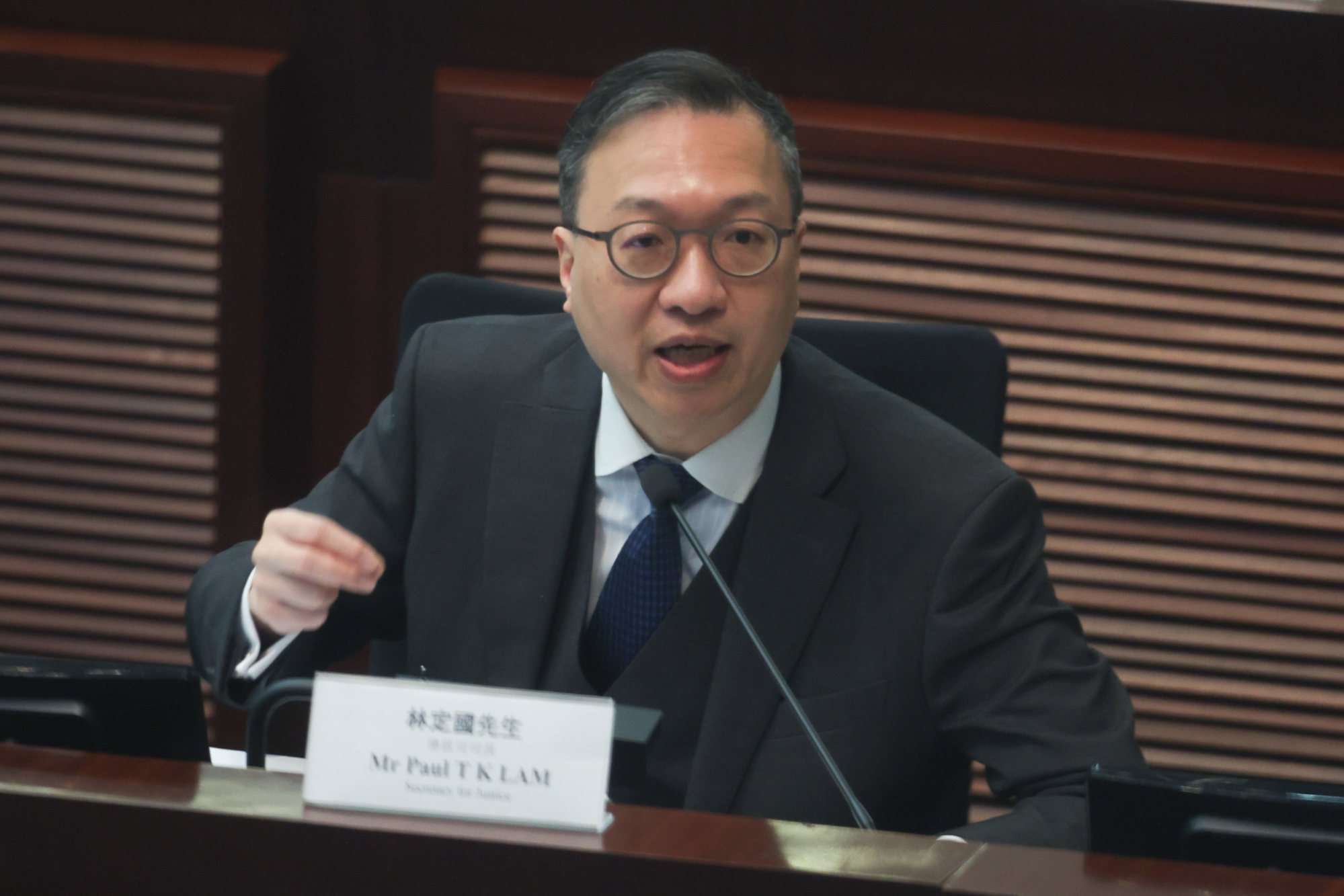
Hong Kong’s domestic security bill: what is being discussed in marathon meetings to speed up its legislation?
- In rare practice not seen over past decade, marathon meetings by a bills committee scheduled over weekend to examine security proposal
- The Post follows the deliberations in the legislature as lawmakers go through the bill clause by clause
The marathon meetings by a bills committee to examine the controversial legislation were scheduled over the weekend in a rare practice not seen in the past decade, with sources saying it could be passed by early April, if not within this month.
The 212-page bill mandated under Article 23 of the Basic Law, the city’s mini-constitution, laid down 39 offences with penalties, including life imprisonment for newly listed crimes such as treason, insurrection and collusion with external forces to damage public infrastructure.
The Post follows the deliberations in the legislature and outlines what is being discussed as lawmakers go through the Safeguarding National Security Bill clause by clause.
March 9
External forces
Security minister Chris Tang Ping-keung ruled out the need to make any changes to the definition of “international organisations” despite concerns flagged by lawmakers a day earlier saying the definition was vague.
Tang said the following:
-
“International organisations” is a neutral term without any negative connotations and is used to identify external forces.
-
Organisations will not be violating any laws for simply being considered as “international” or “external forces”, unless they are linked to criminal elements.

Treason
On the definition of war mentioned in the treason offence:
-
It refers to “actual war” instead of cyber or financial war.
-
“War” is defined as a country attacking China suddenly, or the central government proclaiming war with a foreign country.
The offence targets an individual who “with intent to prejudice the situation of China in a war, assists an enemy at war with China in a war”.
-
“Assist” means assisting in any form.
-
Intent stated to prevent any humanitarian aid to civilians amid a war from being affected.
The offence only applies to people with Chinese nationality. Foreigners who emigrated to and have lived in Hong Kong for seven years or more will not be covered.
A citizen must disclose the commission of the offence and its relevant information to a police officer “as soon as reasonably practicable” after they hear such information.
-
The definition of “as soon as reasonably practicable” varies in each case.
-
It can mean walking a kilometre to find a police officer if the person does not have a phone.
-
Lawyers are not required to disclose the commission of treason if they are providing legal advice to clients according to legal professional privilege.
-
But lawyers will not be exempt if they act as a friend and are being told such information outside a professional setting.
Unlawful drilling
-
Only applies to face-to-face drills, excluding online ones and hacker training which can be targeted by other laws.
Incitement to disaffection
On the offence of “inciting disaffection of public officers”:
-
Does not cover suggesting a public officer retire, not work for the government, or not support the government if no calls are made to also abandon upholding the city’s mini-constitution.
-
“Abandoning upholding the Basic Law and abandoning the allegiance” to the government cover acts such as supporting “Hong Kong independence”, “the secession of the city from the country” and not supporting the city as a special administrative region of the country.
On the definition of public officers:
-
Tang has not ruled out the possibility that the list of definitions may be amended in the future.

Acts with seditious intention
The updated sedition offence will outlaw acts and words intended to incite hatred, contempt of disaffection against the central or Hong Kong authorities.
-
It will not catch critics of the government if one’s “motive is to do good for everyone”, only those who solely say something to “provoke hatred in others and hope that others will destroy the government and the country”.
On whether social media platforms will be held responsible for a user’s seditious remarks:
-
Operators will “basically” not be caught unless the platform is deliberately set up for others to make seditious comments.
-
The Beijing-decreed national security law already provides the legal tool for such contents to be taken down.
On whether residents keeping old copies of the now-defunct Apple Daily would run afoul of the offence of possession of a seditious publication, for which maximum penalty will increase to three years:
-
Chris Tang suggested that forgetting the presence of a seditious publication could make a reasonable excuse.
Clause 24 of the bill stipulates that seditious intentions do not necessarily need proof of incitement of violence or public disorder.
-
The recent appeal court ruling on former opposition activist Tam Tak-chi threw weight behind the authorities’ rationale, but codifying the clause will provide assurance.
-
Officials insisted the approach was in line with human rights and international standards.
Offence in connection with state secrets
State secrets include those concerning “the economic or social development” of China or Hong Kong.
-
Chris Tang ruled out the creation of an agency to designate state secrets.
On unlawful disclosure of state secrets, which also include “parting with possession of the document”:
-
Disposing of information in a roadside bin will also constitute unlawful disclosure if the state secret conditions are met.
-
Chris Tang said the government would review procedures on document disposals after enacting the law.
March 8
External forces
Government adviser and former security chief Regina Ip Lau Suk-yee criticised the bill’s definitions of external forces as “very problematic” and “very broad”, referring to legal terms in proposed offences related to external interference.
She questioned how an organisation with members from just one “place” could be considered an “international organisation” and be deemed an “external force” under the law.


